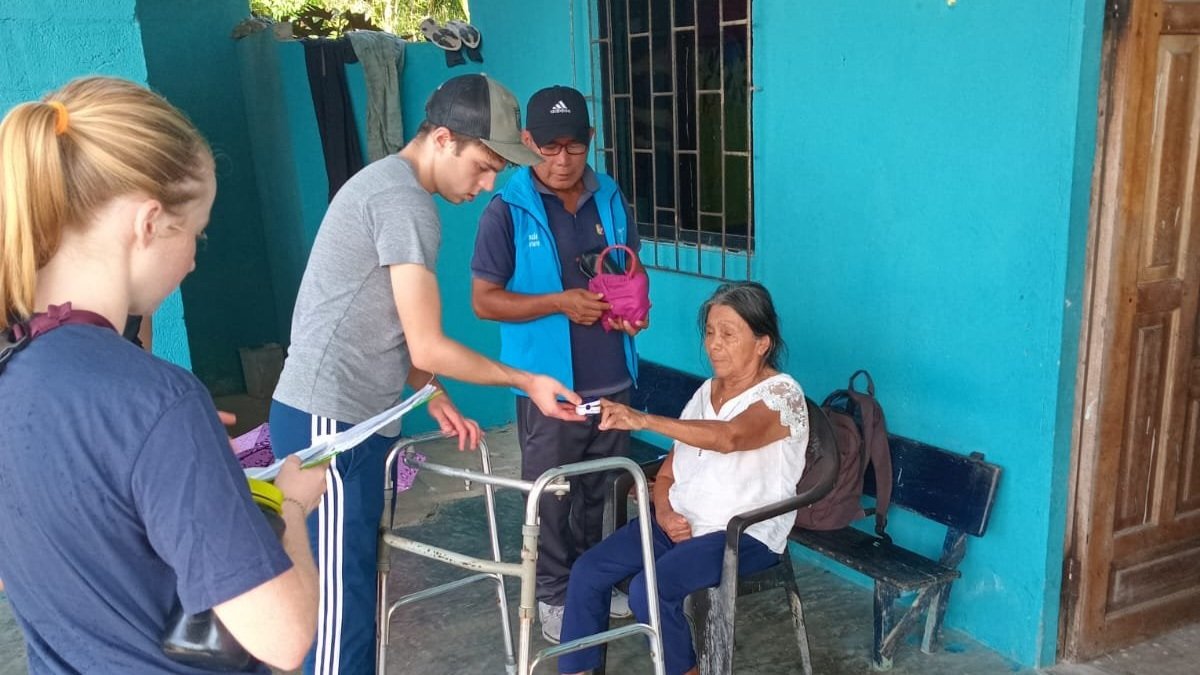By: Sophie McManus, Carleton Extern ‘24
My time and work in Shandia have left me with lasting impressions of the community’s remarkable sense of solidarity. This began on one of our very first nights, when Shandia held a minga. A minga is a gathering of friends and neighbors who come together to work on a shared project for the benefit of the community, without expectation of payment. Similar to the concept of a barn-raising, mingas are rooted in the idea of mutual support and cooperation. They can involve anything from agricultural tasks to infrastructure improvements or even community clean-ups. Shandia held its December minga to prepare for the holiday season. This particular minga focused on hanging Christmas lights on the school and other buildings around the town. It was incredible to see how quickly and efficiently the work came together. In just a few hours, the town was transformed, glowing with colorful and festive lights. Beyond the physical results, the minga showcased the strength of Shandia’s communal ties and the pride they take in working together toward a shared goal.
The next morning, I arrived with my fellow externs at the senior center in Talag, a neighboring town. We were planning to assist in taking vital signs and conducting memory and cognition tests for the elders. After waiting around for a few minutes, it became clear no one was there. We asked around Talag to figure out what was happening. We were told the province’s main road was blocked and no buses could come through. Over the next few hours, we slowly pieced together what was going on. The government had proposed the construction of a maximum-security prison in Archidona, a town about 45 minutes away. Concerned about the prison’s implications for the area’s safety and security, the surrounding communities were implementing a paro, which translates literally to stop. Mounds of dirt had been piled onto major roads, bus drivers and teachers were on strike, and nearly all work in the area had come to a halt. Over the next week, the paro not only continued, but intensified, unfortunately leading to the cancellation of many of our planned externship activities. Despite the many inconveniences of the paro, the experience impressed on me the power of community organizing and collective action. Witnessing entire communities come together to voice their concerns and stand firm in their beliefs was a powerful reminder of the strength that lies in unity. The paro was not just a disruption; it was a testament to the deep connections among the people of this region and their shared determination to protect their way of life. While it brought unexpected challenges to our externship, it also offered a profound lesson about the power of standing together for a common cause.
Over the past two weeks of my work in public health, I’ve had the opportunity to reflect on the many dimensions of health: physical, mental, emotional, social, and more. Observing and working alongside the people of Shandia has offered me invaluable insights, both into their unique challenges and their remarkable strengths. While it’s evident that the community faces significant threats to physical health, such as malnutrition and infectious disease, I’ve been equally struck by the resilience and vitality of their social health. The solidarity, mutual support, and close-knit relationships I’ve observed in Shandia are a testament to the power of communal bonds, even in the face of adversity. Strong social health makes it possible for the community to come together in both celebration, as in the case of minga, and anger, in the form of the paro. As much of the world faces a so-called loneliness epidemic, these experiences have broadened my understanding of how collective action nurtures social bonds. Witnessing the ways in which the people of Shandia nurture and rely on one another has motivated me to prioritize building stronger, more meaningful social connections back home. It has reminded me that health is not just an individual journey but also a collective endeavor, deeply rooted in the strength of the communities we cultivate.
Interested in developing your professional skills in public health? Learn more about our programs here!

